Melinda French Gates’s $15bn vision
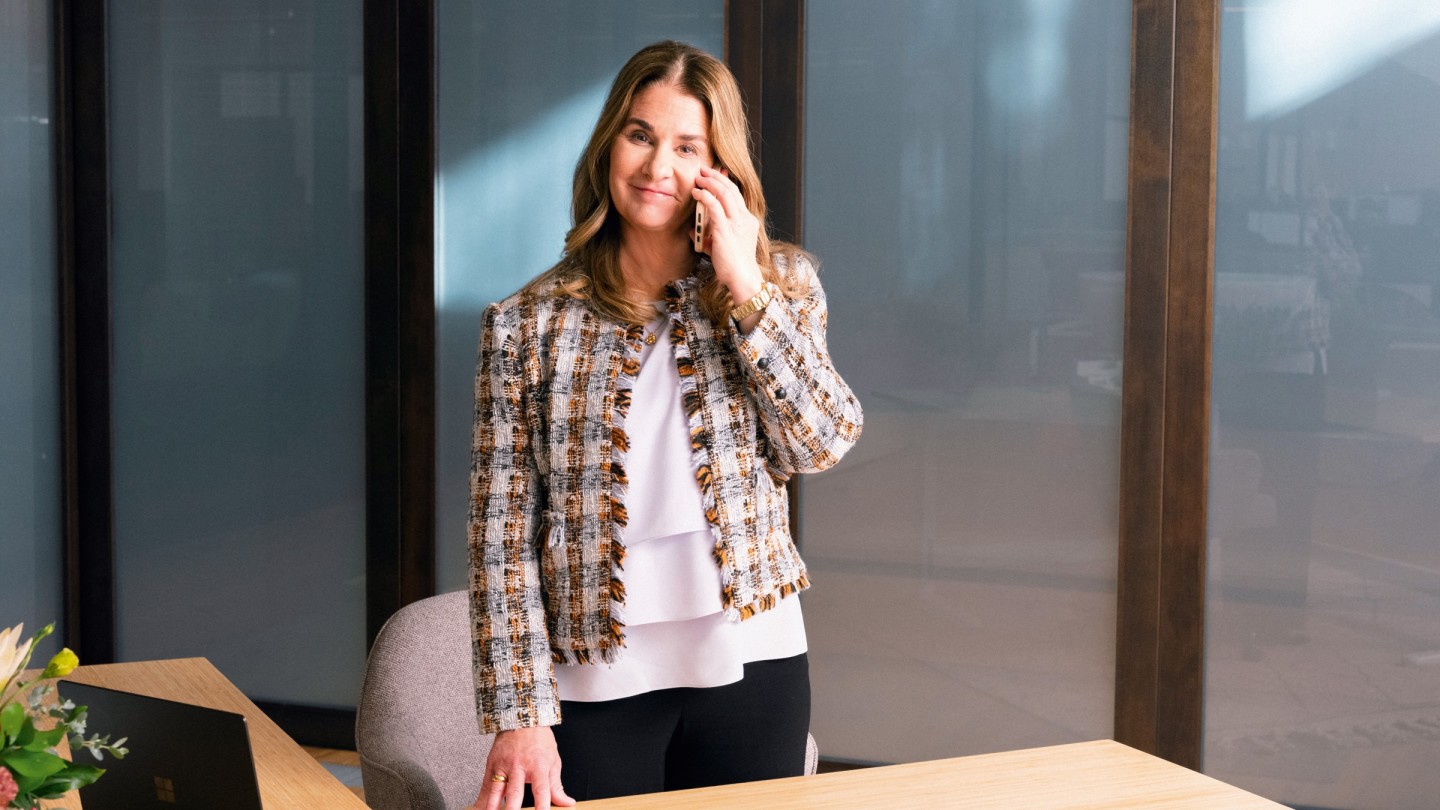
Roula Khalaf, Editor of the FT, selects her favourite stories in this weekly newsletter.
“There’s an African proverb on the wall of the Gates Foundation’s Seattle office that says: ‘If you want to go fast, go alone. If you want to go far, go together,’” points out Melinda French Gates. The saying underlines her latest campaign to encourage people to give as part of a “donor collaborative”. As co-chair of the Bill & Melinda Gates Foundation, it’s something she does – and which she believes, from experience, is the key to making a greater impact. As she puts it, “The most important thing I can do is to lead by example – through behaviour, through mentorship, and through using my voice.”
Since co-founding the Gates Foundation in 2000, French Gates, 58, has emerged as one of the most powerful figures in global philanthropy; the foundation has distributed more than $65.6bn in grants (around $6.7bn last year). The foundation’s continued support of the mission to eradicate malaria has contributed to halving the number of malaria deaths since 2000, while donations totalling nearly $5bn have supported the Global Polio Eradication Initiative in reducing polio cases globally by more than 99 per cent. In 2010, French Gates co-launched The Giving Pledge, which has inspired more than 230 signatories – including easyJet’s Stelios Haji-Ioannou, Airbnb co-founder Joe Gebbia and 23andMe CEO Anne Wojcicki – to commit the majority of their wealth to charity either during or after their lifetimes. Last year, after announcing their divorce, French Gates and Bill Gates committed a further $15bn to their foundation.
French Gates has also ploughed her own furrow. In 2015, she founded Pivotal Ventures, which invests in for-profit and non-profit companies with a view to improving women’s lives in the US. Her 2019 book, The Moment of Lift: How Empowering Women Changes the World, further galvanises action in gender equity – and this year she gave tutorials in impactful giving as a 17-part series on the workshop-streaming platform MasterClass.
But today French Gates is discussing how to change the way we give – and in a year of hugely diverse philanthropic strategies, from Patagonia founder Yvon Chouinard’s announcement that all the company’s profits will go into saving the planet, to Mackenzie Scott’s rapid distribution of $2bn to 343 organisations, this is key. As French Gates says, we now need to “bring people, resources and ideas together in innovative ways”. Adds Jennifer Stout, deputy director of philanthropic partnerships at the Gates Foundation: “With the scale of the problems that exist in the world today, this is something that no one philanthropist or organisation – even the Gates Foundation – can tackle on its own.”
It was back in 2018 that the Gates Foundation began to examine how much more impactful philanthropic groups are when their workings are more collaborative, not just among donors but among the group’s various partners. “A collaborative brings together the funders with the [non-profit] partners that are being supported, along with a set of activist experts and advisors,” says Olivia Leland, founding director of the Giving Pledge and now founder and CEO of Co-Impact, a global organisation that creates such philanthropic groups.
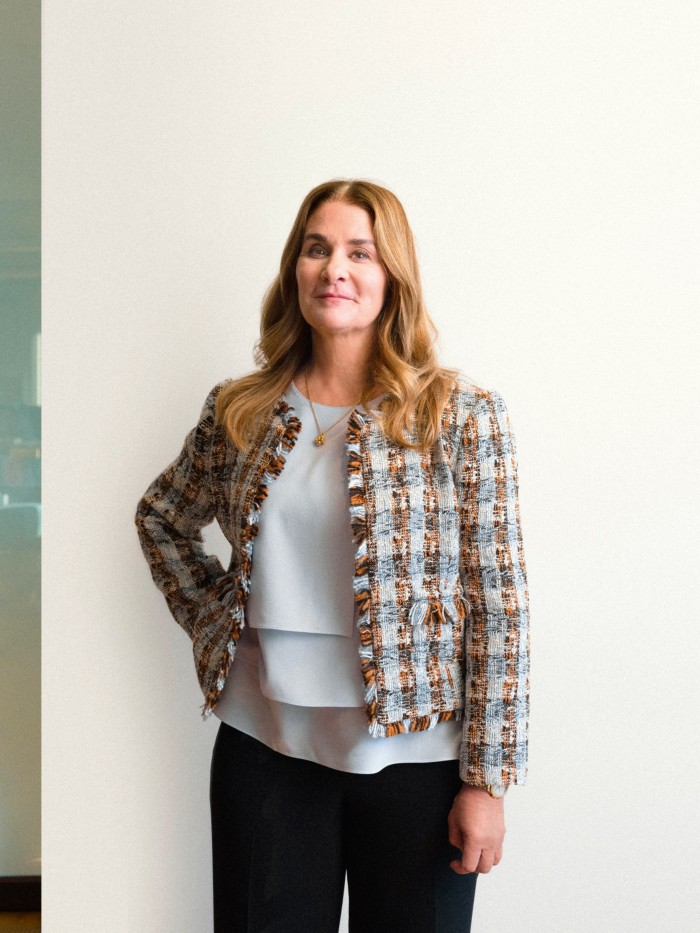
Although each is structured slightly differently, many “collaboratives” operate by pooling resources into the philanthropic equivalent of a mutual fund to address an overarching issue, such as poverty, gender equity or climate crisis. A team of specialists distributes the funds (often through grants) to a portfolio of locally rooted organisations, which they support using an advisory board of local and global experts. “Rather than building an enormous infrastructure ourselves,” says Leland, “we actually build a network.”
While people have long come together in giving circles, collaboratives (as Bridgespan terms them) are fundamentally different, says French Gates. These innovative models “can provide resources that deliver services at larger scales” and they “address root causes by changing systems”. When French Gates says at scale, she means it. Last year, the Gates Foundation contributed $50mn to the launch of Co-Impact’s Gender Fund, which – with individual contributions to date ranging from $1mn to more than $100mn – is on course to raise $1bn in order to transform the lives of 100 million people through better healthcare and quality education.
It’s especially urgent now, when we are on the cusp of an estimated $30tn to $68tn wealth transfer from baby boomers to their heirs. Following the findings of Bridgespan’s 2018 report, and seeing the building potential in collaborative philanthropic funds, The Gates Foundation began commissioning annual studies. The 2021 report revealed that the 97 collaboratives that responded could handle a total of $15bn annually – a five-fold jump – without increasing staffing. It also revealed that these new models speak to a generation of donors reluctant to expand their foundations or philanthropy teams in order to extend their giving into new areas (where they lack expertise), who want to act fast, and who value diverse leadership and power sharing.
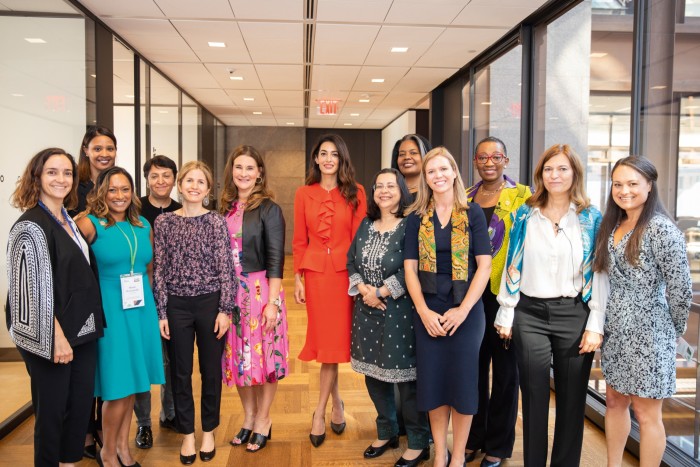
“2020 changed the conversation about systemic inequality in some very important ways,” says French Gates. “The world watched as the pandemic magnified pre-existing inequalities between men and women, between high-income countries and low-income countries, between people of different races and socio-economic backgrounds. Simultaneously, starting in the United States, many countries engaged in a long overdue reckoning about the ways our societies perpetuate racism and injustice.” For French Gates: “The broken systems were front and centre in a way they’d never been before, and the need for change couldn’t have been more obvious or more urgent.”
In supporting a spectrum of partners, the vision of a collaborative becomes bigger than its individual parts, and has the potential to improve the lives of millions. “Systemic change requires a lot of people working together, pooling resources and expertise over time,” says French Gates. “Collaboratives are a great way to formalise partnerships, share knowledge and deploy resources at scale to help us take on the biggest, toughest challenges.”
For French Gates, this is particularly poignant when it comes to issues around gender. “The world hasn’t focused enough on gender equality,” she says. “And even when it does, the solutions often address the symptoms, not the causes. To make progress, we need change at every level of society. This starts with ensuring women can truly exercise their power.”
Big givers

Tsitsi Masiyiwa
Having become a philanthropist to fight the impact of HIV
and Aids, the social entrepreneur is co-chair of Co-Impact’s board and joined the Gender Fund in 2022.
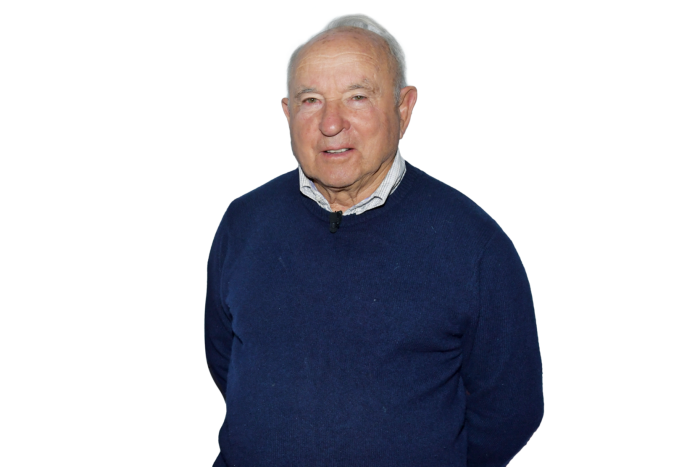
Yvon Chouinard
The rock climber and Patagonia founder announced this year that all the company’s profits – around $100mn a year – would go towards protecting the planet.
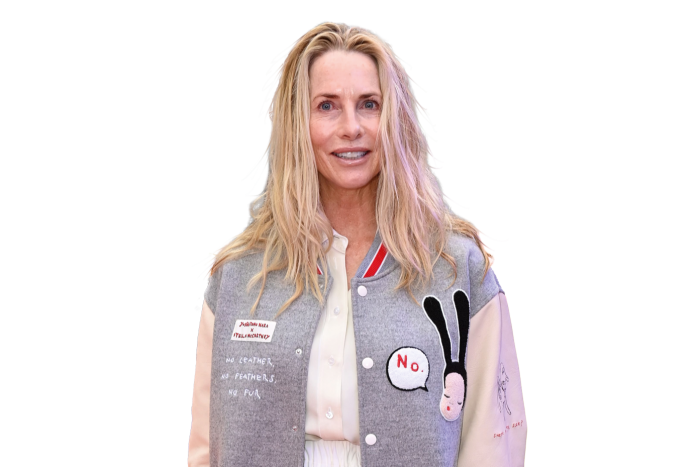
Laurene Powell Jobs
Founder of Emerson Collective and the education non-profit XQ Institute, the businesswoman has committed $3.5bn to combat climate change over the next decade.
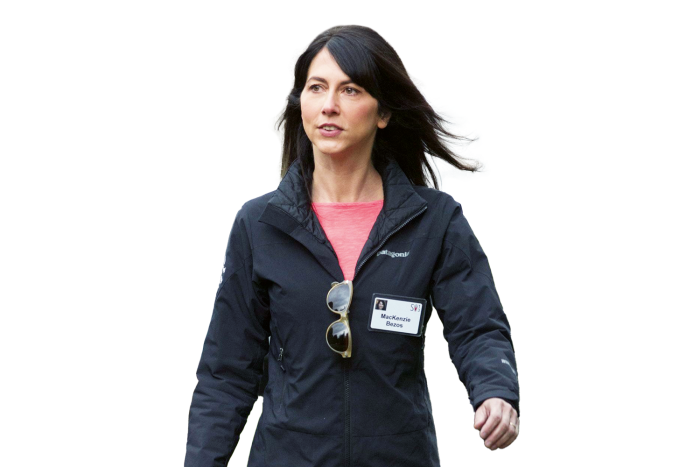
Mackenzie Scott
The US novelist and philanthropist contributes to Co-Impact’s Gender Fund and recently announced her support for not-for-profit social enterprise Harambee.
The Gender Fund sets out to redress the fact that “while funding for gender equality has been rising over the past decade, only one per cent of that funding has reached women’s organisations”. Twenty-two individuals and foundations, including MacKenzie Scott and Dan Jewett, Cartier Philanthropy, The Estée Lauder Companies Charitable Foundation and Tsitsi Masiyiwa, have contributed to the fund, whose $1bn 10-year goal is “to provide predominantly women-led, locally rooted organisations in Africa, Asia and Latin America with large, long-term, and flexible funding”. An initial set of 15 grants included those for initiatives such as the Clooney Foundation for Justice, the Institute for African Women in Law and the Indian Institute of Technology Delhi.
“These needs are urgent and now is the time for us to step out, all of us, as the global community, and philanthropy to play its role within that,” says the Gender Fund’s Leland. “What excites me is the potential of philanthropy to truly advance gender equality in our lifetime.”
It’s also, need it be said, a fabulous way to network. Through working with collaboratives, “I’ve met amazing people,” says French Gates. “[Collaboratives] bring together groups that often share the same goals and priorities, but don’t always know each other.’’ The huge advantages of this, she says, are “tapping into and building on each others’ strengths, listening to and learning from new voices, and bridging gaps”. The upshot is that together they can “achieve a greater impact… than would ever be possible working alone”.
The sentiment is echoed by African philanthropist and social entrepreneur Tsitsi Masiyiwa, who sits on Co-Impact’s board and joined the Gender Fund this year. “I incorporate gender in everything that I do,” she says. “However, I hadn’t yet invested in anything that is specifically looking at the issues of gender inequality. So the beauty was that my dollar is being stretched or my advantage is being stretched by joining forces with other funders, both very high-net-worth, wealthy individuals and also small.”
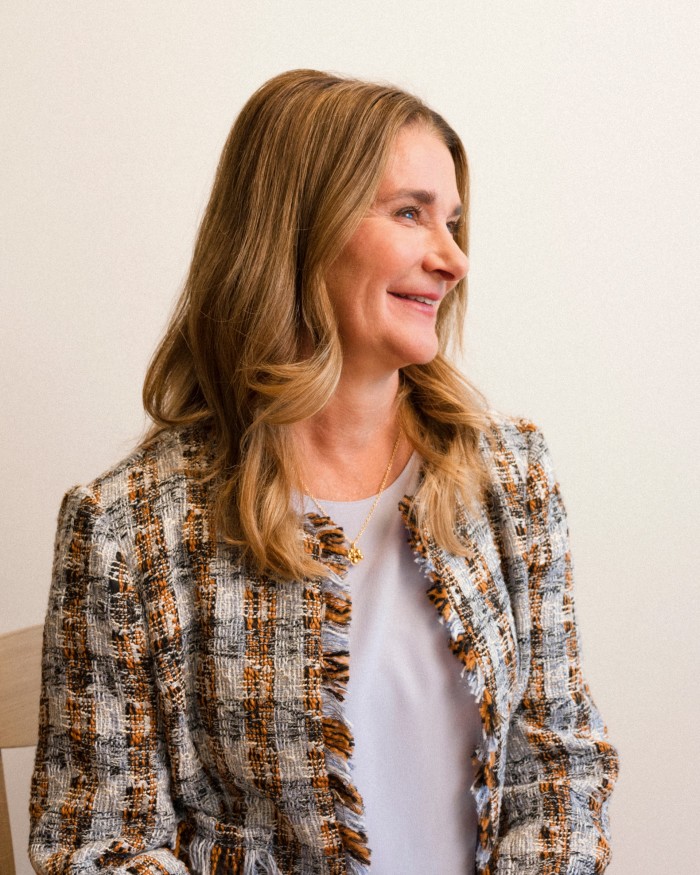
Originally from Zimbabwe, Masiyiwa initially became a philanthropist because she was “heartbroken by the impact of HIV and Aids on my community. My aunt lost nine children, so the struggle for me was, ‘What can I do?’ So [at first] it was very emotional giving.” But she became frustrated with the limits of her reach. “We found that we made a greater impact if we identified programmes or projects where the government policies aligned with our investments and also allowed us to get impact at scale.”
Traditionally, much of the ultra-wealthy’s funding is channelled into institutions such as universities, hospitals or arts causes. New models such as collaboratives, which focus on systems change and address inequalities, can feel like something of an unknown. But these shouldn’t be barriers to giving, says Masiyiwa: “The challenges one begins to think about are, ‘Can I trust the people I’m giving my money to?’ But a formal and well-structured system [such as a collaborative] is what allows me to feel comfortable.” Not only this, but “by having a larger pool of philanthropists… what risk there is, is shared and diversified to some extent”. She also suggests ensuring there are strong “monitoring and evaluation systems to try to minimise or eliminate the risk of failure”.
That said, she is quick to emphasise that collaborative giving requires a shift in mindset: “Philanthropy has to allow for that patient capital where results may not be seen in your generation. You’ve got to allow the management that is working towards scaling a project to have sufficient funds to do it in the long term so that they’re not spending every two years looking for money, writing proposals.”
In it together
More systems-change collaboratives
CLIMATE
The Hive Fund for Climate & Gender Justice
Climate and Clean Energy Equity Fund
GENDER
RACIAL EQUITY
SOCIAL JUSTICE
YOUTH
What Masiyiwa has learnt from being in such groups has been transformative. “One of the biggest hurdles for Global South philanthropists is the idea that, ‘Oh, I have to take my local currency, convert it into pounds or dollars, send it somewhere to the north, and then send it back to the south.’” The answer “was simple, not rocket science. Number one, open accounts in different currencies in key countries. So: create a platform for those who want to give out of South Africa in rands to do so. And those who want to give in shillings in Kenya to do so.”
Most importantly, she concludes, “one of the sweet spots for me… is the closeness to the communities… So with the Gender Fund, the money goes directly to those on the ground that are implementing and doing the work.” This is possible because the landscape has fundamentally changed, she argues. “Twenty years ago, you wouldn’t have found highly skilled, highly educated Africans running programmes on the continent… But we have seen massive investments in education; and more and more women getting degrees, doing master’s programmes, working in both public and private institutions. The result is a lot of qualified people who are from the Global South, who live on the continent and who have deep connections with the Global North through education, who understand how to implement, and who are strong and very good leaders.”
One such organisation is Harambee, a not-for-profit social enterprise that strives to solve youth employment. Harambee is part of Co-Impact’s Foundational Fund, a forerunner to the Gender Fund. Crucially, Co-Impact doesn’t just give its funds in isolation. “Very few funders engage as thoughtfully and deeply with our work as Co-Impact does,” says Kasthuri Soni, CEO of Harambee. “They are willing to fully immerse themselves into our world and to walk the journey alongside us.” Practically, this took the form of “workshopping our initial hypotheses”, right through to “tracking and reporting against delivery of our five-year plan”. Additionally, the model of collaborative philanthropy has “been critical in helping us leverage a significant amount of government and local matched funding, enabling us to create a roadmap to significant scale”. MacKenzie Scott has also announced that she will be donating to Harambee.
“Philanthropy is able to take risks governments can’t or won’t, and it exists outside the pressures the private sector faces to deliver profits and yield immediate results,” believes French Gates. “Progress has stalled or even reversed in areas such as global health, gender equality and food security as the world experiences overlapping crises. How the world responds to these setbacks is a choice. This is a test of the resolve of governments and philanthropists. Billions of lives are at stake. But we also know that when the world invests in long-term solutions and innovative approaches, the world has overcome even the most negative projections. So it’s heartwarming that interest in collaboratives is growing… and that those efforts are connecting donors to communities and partners who are doing heroic work to help people achieve their full potential.”
By way of example, she refers to her trip to Senegal in June, where “I met two enterprising women who founded E-cover, Senegal’s first and only tyre-recycling company, turning discarded tyres into the base for synthetic turf for soccer pitches and fuel for cement plants. They started out by breaking down tyres using a meat grinder and spoons in their backyard.
“In Senegal, even though 31 per cent of businesses are owned by women, they only have access to 3.5 per cent of available capital,” says French Gates. “Women are more likely than men to lack collateral and face both gender bias and a high cost for capital.” But in this case, these women received funding from WIC Capital, which works exclusively with women-led companies. E-cover now employs dozens of workers.
Just imagine where the world might be, implies French Gates, if we came together to fund more initiatives like these at scale.
Three mindset shifts to joining a collaborative
By Nidhi Sahni, partner and head of Bridgespan’s US Advisory services
Get started
We observe that the biggest challenge facing donors is one of delay. So, what’s the dilemma? In our experience, the lack of forcing functions creates significant delay. Donors often seek the “best” giving opportunity and allow the perfect to be the enemy of the good. Market fluctuations, like the volatility we are experiencing now, can create a sense that there will be more money to give later, so it might make sense to hold on for an upturn in the market. You don’t have to give millions your first time out of the gate to have impact. In fact, we have seen smaller gifts to organisations where the donors’ dollars are meaningful, which allows for philanthropists to get to know issues and organisations, and grow their giving over time. You can get started at whatever level makes sense for you given your current circumstances.
Trust others
Moving from “I need to have all the answers” to “I trust those who have been doing this work”. Ideally this would build donor confidence in moving resources to those with experience. This connects to giving through collaborative vehicles. I will say that when we interviewed over fifty leading donors a decade ago, the most consistent advice we heard from them was “get going”. We have seen that when donors get started, they learn along the way, and it encourages them to do more. Or you can trust others who have been deep in the work to guide your giving.
Don’t assume non-profit leaders can’t absorb your giving
There is a myth around smaller organisations’ ability to absorb significantly more capital that needs to be dispelled. Our research tells us that funds can absorb 10 times the amount they are currently receiving and put it to effective use. There are other ways, like funding endowments, where donors can give large amounts of money that are easy for non-profits to work with.
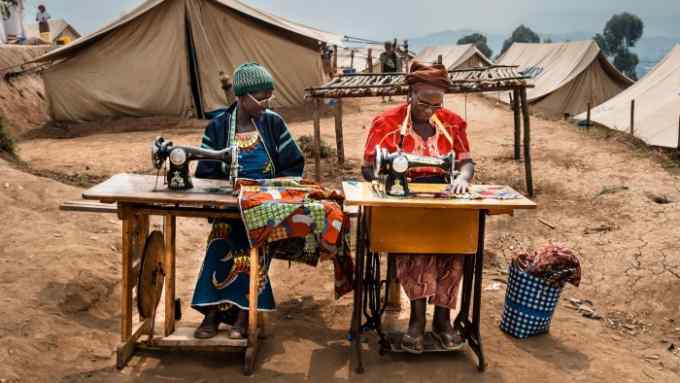
Comments